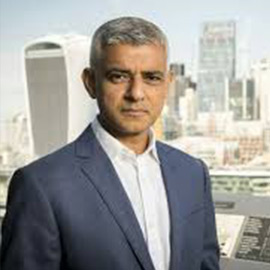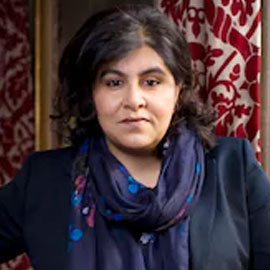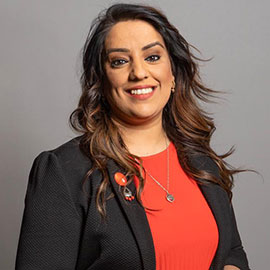Urgent Law Reform Needed To Govern Religious-only Marriages
|
Download PDF
17th February 2020 MEDIA STATEMENT Urgent Law Reform Needed To Govern Religious-only Marriages Muslim Women's Network UK (MWNUK) want marriage law reforms so as to better protect Muslim women. The case of Ms. Nasreen Akhter and Mr. Mohammed Khan highlights yet again how religious-only marriages can disadvantage Muslim women. Although the couple reached a settlement, Ms. Akhter was not legally entitled to claim money or property from her husband despite being married for 20 years and having four children because their marriage was not lawfully valid. This is because the couple only had an Islamic ceremony in the UK and did not also have an additional civil marriage under English law. The High Court had decided that although they were not in a legally valid marriage, it was nevertheless a 'void' marriage. Where a marriage is deemed void, a decree of nullity can be granted which then paves the way for financial relief claims. However in doing so, the High Court had taken a rather flexible approach to coming to this decision, which the Court of Appeal has rightly overturned. Nazmin Akthar, Co-Chair of MWNUK explained: "Contrary to what has been suggested in some of the commentary, void marriages are not a new concept and it is not the first time that void marriages have been discussed in court rooms. What set the High Court judgment in Akhter v Khan apart however was that usually void, and indeed voidable marriages, are considered in the context of what may have otherwise been a legally valid marriage. This could be for example, where it turned out the couple were in a prohibited degree of relationship, one party was already legally married to another individual or there was non-compliance of a statutory rule governing the formation of marriage. However here the parties clearly knew that they were entering into a religious-only marriage and could not be said to have in any way to have attempted to follow the rules under the Marriage Act 1949." All marriage ceremonies must comply with the requirements as set out in the Marriage Act 1949 in order to be legally valid. Certain marriages conducted in accordance with religious rules, such as Jewish, Quaker and Church of England marriages can be legally recognised where the correct procedure for each has been followed. Individuals from other faith communities, such as Muslims, Sikhs and Hindus must have a civil marriage if they want to have a legally recognised marriage and protect their financial rights, as their religious only marriage will not be sufficient. An exception to this rule is for marriages conducted abroad, which may recognised if they are considered valid under the law of the country in which they take place. Nazmin Akthar, Co-Chair of MWNUK added: "It is very important to note that Ms Akhter, a lawyer herself, and Mr Khan were both fully aware that their religious-only marriage was not legally recognised. We are informed that Ms Khan fully intended her religious-only marriage to be followed by a civil marriage and regularly asked for a civil ceremony to take place, but was consistently rebuked by Mr Khan. Indeed he allegedly smashed a chair during an argument and threatened to never civilly register the marriage which was taken to indicate that the issue of a civil marriage was always live throughout the course of the marriage. Additionally the parties had lived in Dubai for some time and Mr Khan had used his Islamic marriage certificate to prove to the Dubai authorities that they were validly married. This is different to many other Muslim couples in the UK that have no intention to ever enter into a civil marriage (though for a number of Muslim women this may be out of fear of remaining unmarried) and may have in fact purported to be single, such as when claiming benefits. Thus even if the Court of Appeal had upheld the High Court decision, it would still not be the 'landmark' decision that it is being claimed to be because the vast majority of Muslim women in religious-only marriages would still not be able to rely on Akhter v Khan to argue that they are in a 'void' marriage." We are aware that a number of campaigners want Islamic marriages to be legally recognised, but MWNUK does not agree with this position. Although their stance is well meaning because they want to protect vulnerable Muslim women, it will not be helpful. Legalising Muslim marriages would still leave many Muslim women vulnerable and create other problems because of the practice of polygamy within Muslim communities. Shaista Gohir OBE, Co-Chair of MWNUK said: "Having more than one legally recognised marriage would conflict with British laws because bigamy is illegal. Also, which existing polygamous Muslim marriage would be accepted under the law? Even if the husband's first marriage is recognised, how about his second wife? Legalising Islamic marriages also will not prevent Muslim men from entering into one officially recognised Muslim marriage and then going through additional secret marriages without paperwork to avoid prosecution. To completely safeguard financial interests they may only choose to have unofficial religious ceremonies." MWNUK therefore advocate for reforming the law so that a civil marriage must take place before a religious one. Those conducting religious ceremonies should be legally required to verify couples have had a civil marriage or be capable of registering the marriage themselves. MWNUK has been lobbying the government for such law reforms since its report, 'Information and Guidance on Muslim Marriage and Divorce in Britain.' Four years ago more than 100 Muslim women also signed an open supporting letter to government. Muslim women must be at the forefront of informing the solutions that work for them. The previous Lord Chancellor David Gauke had informed MWNUK that our proposals would be given detailed consideration. We are in correspondence with the new Lord Chancellor Robert Buckland QC urging him to change the law to protect Muslim women as otherwise they will continue being pressured into entering religious only marriages or being promised an additional civil marriage at a later date, which then does not happen, as has been the case for Ms Akhter. Nazmin Akthar, Co-Chair of MWNUK added: "Although it is difficult to quantify the extent of the problem, when these legally invalid marriages break down, the consequences for Muslim women can be devastating and include homelessness, loss of assets and not being able to claim financial support. This is especially traumatic when children are involved, as we have found when women contact us on our national helpline." MWNUK proposals would not only safeguard women's financial rights but would also make it much harder for Muslim men to enter into polygamous marriages. An additional benefit would include Muslim women being able to obtain more speedy Islamic divorces. Being in a civil marriage would mean having to also go through a civil divorce and in most instances when civil divorce papers are presented to Shariah Councils, they have no choice but to grant the religious divorce. Shaista Gohir OBE, Co-Chair of MWNUK added: "As most Muslim women also want to feel divorced in accordance with their faith, they are likely to continue using such services despite their discriminatory treatment of women. To make Muslim women less reliant on these religiously conservative institutions a campaign is also needed to educate Muslim communities that in most cases a civil divorce can also suffice as an Islamic divorce. Once Muslim women stop using Shariah divorce services, it would make most Shariah Councils redundant in the future." Legislative reform will not only solve many problems for Muslim women, it will also help the government with its international obligations under the Convention on the Elimination of all Forms of Discrimination Against Women (CEDAW), which requires measures to eliminate discrimination against women in all matters relating to marriage and divorce. This is a win-win opportunity for government. Ends For further information contact: Shaista Gohir OBE (Co-Chair of MWNUK) 0121 236 9000 / 07802 225989 / shaista@mwnuk.co.uk Nazmin Akthar (Chair of MWNUK) 0121 236 9000 / board@mwnuk.co.uk / 07972 542475 Muslim Women’s Network UK (www.mwnuk.co.uk) is the national leading Muslim women’s charity working to improve the social justice and equality for Muslim women and girls |
|















